Esther McVey made her first speech as housing minister at Property Week’s RESI Convention last week, to an industry waiting with bated breath to hear what its ninth minister in 10 years would bring to the table.
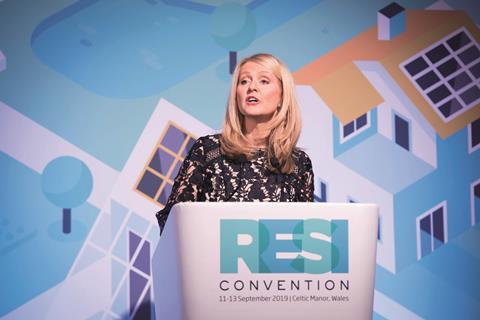
While home ownership was a clear focus for the minister, she covered a range of issues from illegal green-belt building to the UK’s potential to be a modular powerhouse.
Here are four of the key takeaways from her speech.
>> Home ownership and BTR
Home ownership was top of McVey’s agenda. The minister said that the housing shortage was “destroying the aspiration of a generation of working people” to own a home and that 80% of UK residents would choose ownership over renting.
McVey said the government would look to expand shared ownership to make it more accessible to working families by “supporting it in different ways, taking out what we hear to be the difficulties and expense of it”.
She also hinted that the government could look into right to build as a way to tackle the housing crisis, saying: “So many places around the world have far more people building their own homes.”
McVey touched on young people wanting different types of housing, including homes with communal spaces and amenities. The industry tends to associate this type of housing with build-to-rent, although McVey did not mention that part of the market. When conference host Mark Easton highlighted this, McVey said: “If people want to rent, then great… we want and support good landlords.”
>> Modular housing
McVey set out a vision for the UK to become a world leader in design and construction after its departure from the EU. She said she saw “a centre of construction excellence” being formed in the North East, North West and Yorkshire, where modular building is picking up.
“We can have a new industry,” she said. “When we are building at such a significant scale and pace, the career opportunities are huge.”
The government would retain EU product standard requirements to ease the transition for the construction industry, the minister said. She added that the industry had an opportunity to “set new housing standards for the rest of the world”.
>> Housebuilding numbers
The housing minister was complimentary about the volume of housebuilding everywhere in the country except London. She cited 12% growth in new homes in Greater Manchester and a “whopping” 80% in Birmingham.
She added: “Only in London, where housing is in the hands of a Labour mayor more interested in PR stunts than in his builders, has the number of new homes fallen.”
McVey said that while figures for housebuilding were moving in the right direction, there were still “serious barriers” slowing progress and that government needed to understand what those were to resolve them.
>> Brownfield and greenfield development
McVey made her aversion to building on greenfield sites very clear. “Every blade of grass must be looked at before it is changed and it is only in the most exceptional circumstances that we turn there,” she told delegates as she announced a £2m fund to help councils crack down on illegal greenfield construction.
In the following Q&A session with Easton, McVey maintained that it was possible to hit the 300,000-homes target without touching greenfield land. The minister said that in 2017-18, 53% of building was on brownfield sites.
“Local authorities are coming forward with brownfield sites and how many housing plots there could be,” she said, adding that “over a million homes” could be built on such sites. She concluded: “Regeneration is something we should be most proud of; turning around that unloved land.”
























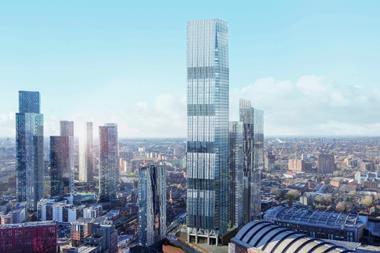
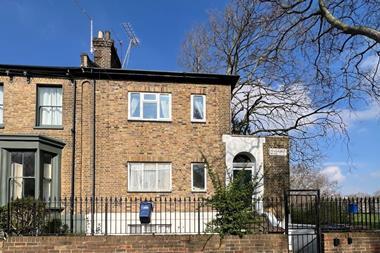

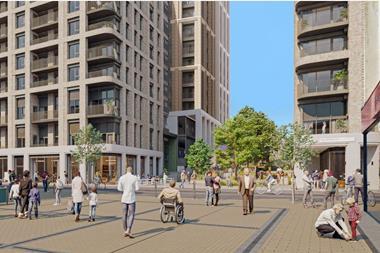
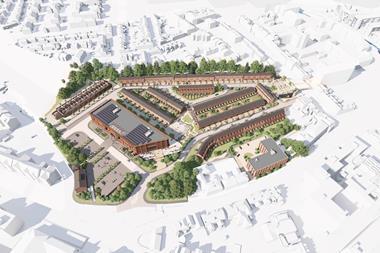
No comments yet